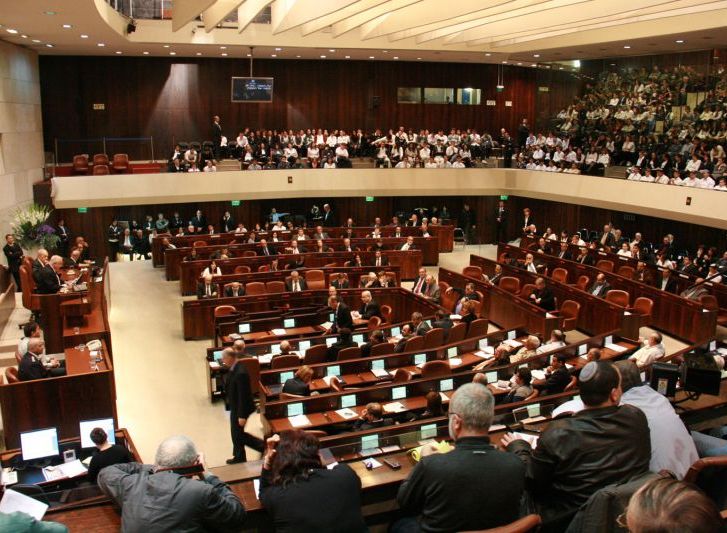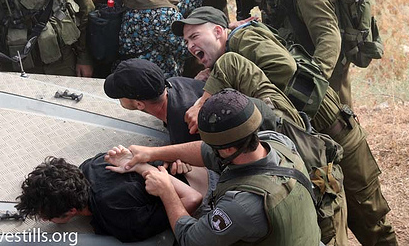Expanded Supreme Court Panel Hears Petition Against ‘Anti-Boycott Law’
An expanded judicial panel of nine justices focused on the legal question of whether the law harms freedom of political expression
On 16 February 2014, the Supreme Court of Israel held a hearing on a petition filed by Adalah, the Association for Civil Rights in Israel (ACRI) and other leading human rights associations and political groups against the ‘Anti-Boycott Law’. The hearing came at a time of heightened interest in the boycott in Israel and worldwide.
During the hearing, an expanded judicial panel of nine justices focused on the legal question of whether the law harms freedom of political expression. Adalah Attorneys Hassan Jabareen and Sawsan Zaher and ACRI Attorney Dan Yakir argued that the law imposed a ‘price tag’ for legitimate political expression and undermined public debate on the most controversial issues in Israeli society. The law has had a ‘chilling effect’ by deterring calls for a boycott as a political stance.
After the hearing, Attorney Jabareen stated his hope that, “the justices will decide that the call for a boycott in response Israel’s policies is a legitimate call that falls within the context of political protest, as guaranteed by the freedom of political expression, and that the law seeks to prohibit it in order to prevent protest against Israeli practices and policies.” He added, “The fact that a majority in Israel views the call for a boycott as an extreme act is not sufficient reason to ban it.”
The law, enacted in July 2011, imposes sanctions on any individual or entity that calls for an economic boycott of Israel’s West Bank settlements or of Israel itself. It allows entities to win compensation from individuals or organizations that have called for a boycott, without needing to prove actual damages. It also permits the Finance Minister to impose severe economic sanctions on Israeli individuals, groups, and institutions that receive state support if they call for or participate in a boycott.
Both the law itself and its impact on constitutional rights have been sharply criticized by civil society organizations in Israel, the European Union, international human rights organizations, and even the United States government. The Knesset’s legal adviser has also come out strongly against the law as an “injury to the heart of free political expression in Israel.”
The petition was filed on behalf of eight civil society organizations, including five leading human rights organizations in Israel – Adalah; ACRI; the Public Committee Against Torture in Israel; HaMoked - Center for the Defence of the Individual; and Yesh Din. The petitioners also include three organizations that promote an economic boycott as a means to end the Occupation: the Coalition of Women for Peace, the High Follow-up Committee for Arab Citizens in Israel, and the Jerusalem Legal Aid and Human Rights Center.
Case citation: HCJ 2072/12, The Coalition of Women for Peace, et al. v. The Minister of Finance, et al. (pending)
For more information, see:
Excerpts of the State’s Response (English)
Leading Human Rights Organizations Petition the Israeli Supreme Court to Cancel the Anti-Boycott Law, Adalah Press Release, 15 March 2012
Israeli Supreme Court to Hold Hearing on “Anti-Boycott Law”, Adalah Press Release, 3 December 2012
















